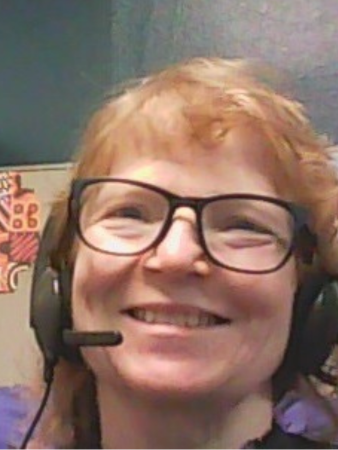
We are proud to highlight our members who commit their time and resources to helping Wisconsin libraries and librarians thrive through their work with the Wisconsin Library Association. Each month, we will be sharing their stories and hope you will be inspired to learn more about our programs or get involved!
Fill out the Lead with WLA form and be connected with other change agents, leaders, and committees that can use what you have to offer.
Val Magno | May 2023
 For which library, institution, or organization are you currently employed? If you are retired, what was your former organization? For which library, institution, or organization are you currently employed? If you are retired, what was your former organization?
I have been working at Fox Valley Technical College for over 16 years now. Money is not my only compensation. My job allows me to live my values of teaching, learning, creativity, critical thinking, and supporting my community.
How many year(s) have you been a member of Wisconsin Library Association?
My profile mentions 2009 as my start date, but I know there have been a few years I missed out. When I started to feel something was missing in my professional life, I reactivated my membership. When I talk about library issues to my family, their eyes glaze over and they look like they want to run away. Being a member of WLA means I have access to people who want to discuss library stuff.
What has been your favorite or most impactful function or event of WLA?
I really like attending meetings and programs virtually. With staffing so lean, it is hard to get away from the library. The virtual events provide updates, inspiration, and a sense of belonging.
How has being a member of WLA impacted you or your career?
Having access to a professional network means that if I can’t find an answer, I can find someone who can. Being a member of WLA indicates that I am a professional.
Do you have a library role model (in Wisconsin or elsewhere) that has provided you with inspiration or guidance? Please share a little bit about it.
My mother was a librarian, and my father was a staunch supporter of public libraries as an essential part of democracy and empowering people who could not afford books (in his day) to educate themselves. Back in the middle of last century, if you could not afford college, you could still teach yourself through reading, if you had access to books. The path to empowerment now is access to computers and internet service, more than books. Even so, the library is still the best place to turn for help. Libraries are also a microcosm of social sharing issues throughout the world: Services and resources cost money, and the people paying want to control how the money they pay is being used. Payer-dictated purchases sounds fair, except for the ethical quandary of “power feeds power”. In general, the powerful don’t need help and the more powerful a person feels, the less empathetic they may become. Payer-dictated collection development is in opposition to the library function of diminishing power imbalances by providing resources to under-resourced people who can’t afford to pay for the resources. People wanting to exert control also applies to book banning. In many cases, it is easier to ban or get rid of something than to add or advocate for its place in society. Banning bikes from sidewalks is easy. Redesigning the road to accommodate bike riders takes money, time, effort, and determination. Banning books is easy. Developing an inclusive collection that creates a positive experience for under-resourced and under-represented community members also takes money, time, effort, and determination.
|